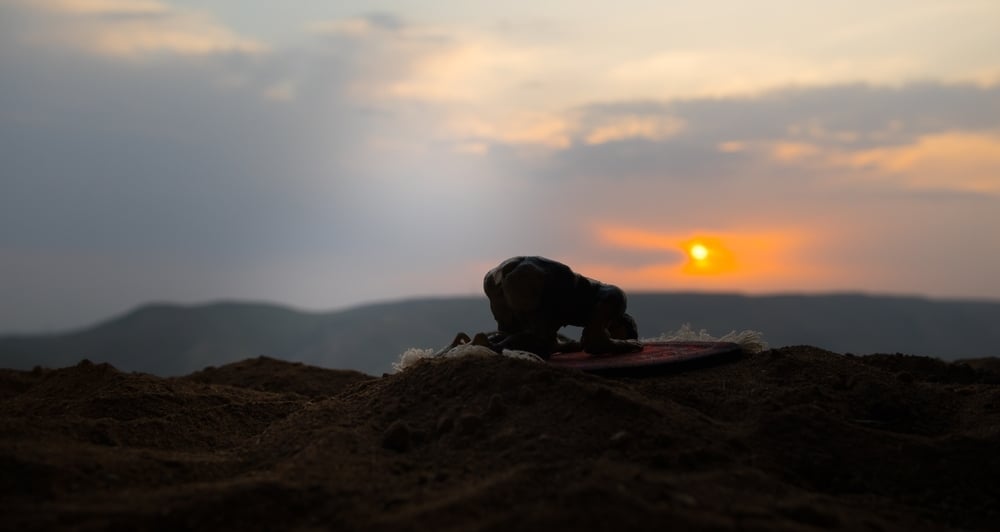What If Compulsory Military Service Compelled Me to Expose My ’Awra and Miss Jumu’a?
Shafi'i Fiqh
Answered by Shaykh Irshaad Sedick
Question
What should one do if faced with compulsory military service that requires shaving the beard, wearing shorts revealing the ‘awrah, and making it difficult to perform the Friday prayer?
Answer
In the Name of Allah, the Most Merciful and Compassionate. May Allah alleviate our difficulties and guide us to what pleases Him. Amin.
When an individual is compelled to undergo compulsory military service (or similar) and face challenges related to religious practices, they should do their absolute best to fulfil their obligatory responsibilities and avoid prohibitions while striving to attain freedom to practise their religion as they prefer. Allah is Most Merciful and Forgiving for what one has no control over, and Allah knows best.
Shaving the beard is considered disliked in the Shafi‘i School, and, therefore, not sinful, but exposing the ‘awra (nakedness) and not attending the Jumu‘a Prayer is unlawful, and you should exert every effort to uphold Sacred Law, without causing harm to yourself or others.
Check the link:
Friday Prayer Shafi‘i
Allah says: “Allah does not require of any soul more than what it can afford. All good will be for its own benefit, and all evil will be to its own loss.”
˹The believers pray,˺ Our Lord! Do not punish us if we forget or make a mistake. Our Lord! Do not place a burden on us like the one you placed on those before us.”
Our Lord! Do not burden us with what we cannot bear. Pardon us, forgive us, and have mercy on us. You are our ˹only˺ Guardian. So grant us victory over the disbelieving people.” [Quran, 2:286]
Jumu‘a
Jumu‘a is obligatory for every male Muslim who has reached puberty and is not excused from the Friday Prayer, such as someone who is sick. [Nawawi, Minhaj al-Talibin]
The Prophet (Allah bless him and give him peace) said, “To pray the Friday Prayer in a group is an obligation and is incumbent upon every Muslim except for four: a bondsman who is owned, a woman, a child, and a sick person.” [Abu Dawud]
Ruling on the Beard
Shaykh Amjjad Rasheed writes, “Imam Abul Qasim al-Rafi`i and Imam Abu Zakariyya al-Nawawi, in accordance with the position of Imam Ghazali, have ruled that to keep a full beard is merely recommended, not obligatory, and that it is neither unlawful to shave it nor to shorten it, even when this is done without an excuse. It is, however, disliked to shorten or shave the beard because it contravenes the prophetic command to grow a full beard.”
Please see the full answer here.
What is the Ruling of Shaving and Shortening of Beard in the Shafi‘i School
The Male ‘Awra
Shaykh Shuaib Ally writes, “The minimum requirement for a male to cover in front of others is between the navel and the knees, non-inclusive. Uncovering that area in front of others, not including one’s wife, or for reasons of medical necessity, is impermissible.
This is a minimum requirement and the area one must cover for a prayer to be valid. It does not speak to what is appropriate to wear in everyday circumstances. Generally, not following societal norms above meeting the minimal requirement is disliked.”
Please read the full answer here.
What is Male Dress Code According to the Shafi‘i School
Accommodations and Exceptions
In some cases, military authorities may be willing to accommodate religious practices. Engage in respectful and open communication with the relevant authorities, seeking reasonable solutions that allow you to adhere to your religious obligations while fulfilling your military duties.
Religious Concessions
Islam acknowledges necessity (darura) as a basis for the pardon or suspension of certain religious obligations. Concessions may be allowed if adhering to specific religious practices poses a genuine threat to your well-being or the well-being of others. Still, you should exhaust every available means to enable you to practice your religion, and Allah knows best.
I pray this is of benefit and that Allah guides us all.
[Shaykh] Irshaad Sedick
Checked and Approved by Shaykh Faraz Rabbani
Shaykh Irshaad Sedick was raised in South Africa in a traditional Muslim family. He graduated from Dar al-Ulum al-Arabiyyah al-Islamiyyah in Strand, Western Cape, under the guidance of the late world-renowned scholar Shaykh Taha Karaan (Allah have mercy on him), where he taught.
Shaykh Irshaad received Ijaza from many luminaries of the Islamic world, including Shaykh Taha Karaan, Shaykh Muhammad Awama, Shaykh Muhammad Hasan Hitu, and Mawlana Abdul Hafeez Makki, among others.
He is the author of the text “The Musnad of Ahmad ibn Hanbal: A Hujjah or not?” He has been the Director of the Discover Islam Centre, and for six years, he has been the Khatib of Masjid Ar-Rashideen, Mowbray, Cape Town.
Shaykh Irshaad has fifteen years of teaching experience at some of the leading Islamic institutes in Cape Town). He is currently building an Islamic podcast, education, and media platform called ‘Isnad Academy’ and has completed his Master’s degree in the study of Islam at the University of Johannesburg. He has a keen interest in healthy Prophetic living and fitness.
